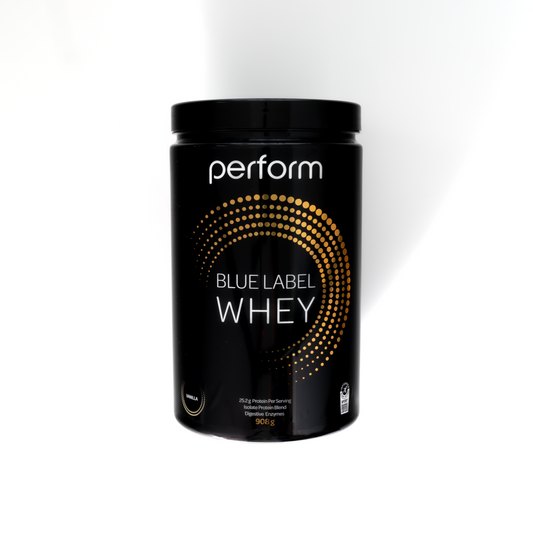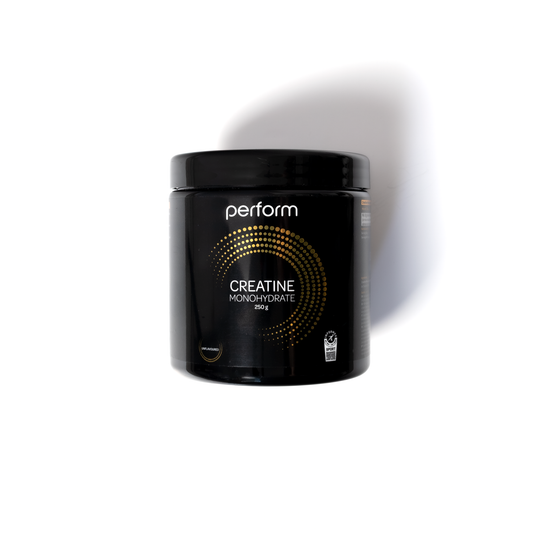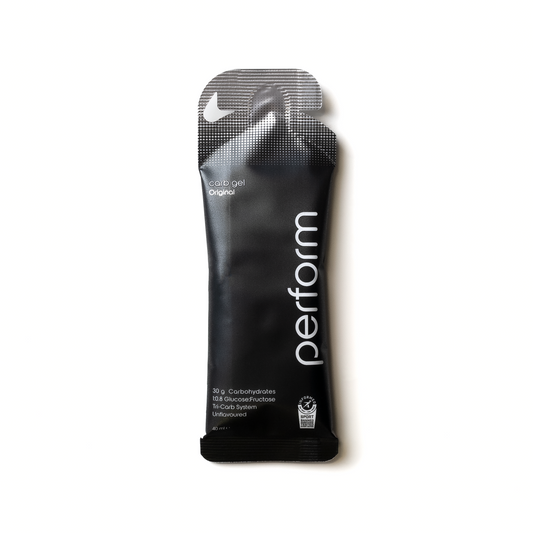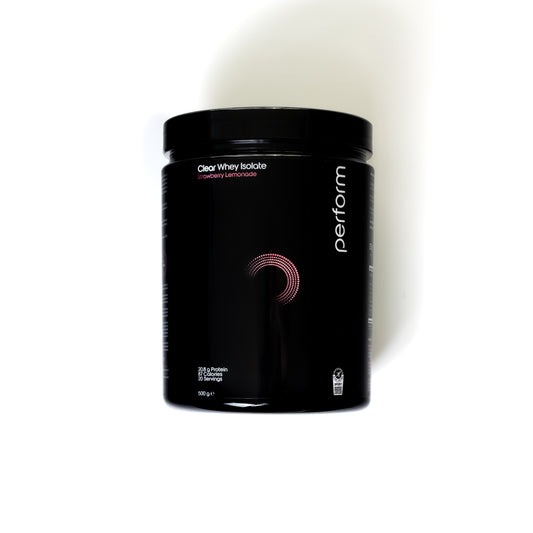Caffeine is the world's most widely used stimulant. Athletes have long relied on it as a powerful ergogenic aid that enhances performance, endurance, and mental focus. You'll find it everywhere in sports nutrition, from energy drinks and coffee to pre-workout supplements. But what's the science behind its effectiveness? What's the optimal dose and are there any risks to consider?
In this blog, we'll examine the science of caffeine, reveal its performance benefits, provide guidance for safe and effective use, and help you decide if it belongs in your training routine.
How Caffeine Works
Caffeine works primarily by blocking adenosine, a neurotransmitter in the brain. (1) When this happens, you feel more alert and energetic. This blocking action triggers a series of effects in the central nervous system (CNS), enhancing neural activity and improving physical performance.
Caffeine also triggers the release of adrenaline, our "fight or flight" hormone. This increases heart rate, enhances blood flow to muscles, and makes more energy sources like glucose and fat available—all of which boost performance. (2)
The stimulant also changes how the brain perceives effort and pain, enabling athletes to train harder and longer during intense sessions.
Performance
Research has consistently demonstrated that caffeine enhances both mental and physical performance.
- Endurance Sports (2)
Caffeine improves performance in endurance activities like running, cycling, and rowing. It reduces perceived effort and delays fatigue, making it particularly valuable for endurance athletes.
- High Intensity Training and Strength (1)
Caffeine increases power output and muscular endurance. Research shows improved one-rep max strength and extended time-to-exhaustion across resistance and sprint-based sports.
- Mental Performance (3)
Caffeine enhances cognitive functions like focus, attention, and reaction time. It also helps sustain performance during lengthy efforts and mentally demanding situations..
Optimal Usage: Dose and Timing
While caffeine is effective, more is not necessarily always better. The key lies in finding the right dose for your body and performance goals.
Dosage
Most performance benefits occur at doses between 2-4mg/kg of bodyweight, though some studies show benefits up to 6mg/kg. (4) For a 70kg individual, this translates to 140-420mg. While some athletes respond well to lower doses, others may need more for optimal results. It's essential to test your individual response during training sessions to avoid any surprises on race or match day. However, doses above 600mg are not recommended as they provide no additional benefits and may lead to negative side effects, which we'll discuss in the final section.
Timing
Timing is crucial. Caffeine enters the bloodstream quickly, with peak blood levels occurring between 30-120 minutes after consumption. The exact timing depends on the delivery method (capsules, powder) and individual genetic and physiological factors. These elevated levels typically last 3-4 hours before declining.(5) Because of this long-lasting effect, it's best to avoid caffeine late in the day since it can negatively impact sleep quality, duration, and recovery.
Potential Side Effects That Can Hinder Performance
Caffeine is safe and effective in the 2-4mg/kg of bodyweight range. However, it can lead to potential downsides that can negatively impact performance. (4)
- Jitters/shakiness
- Elevated HR and/or blood pressure
- Sleep and recovery disruption
- Digestive issues
It is important to consider these potential consequences. Test how caffeine consumption works in your training and how your body responds to implement the best race day practices possible.
Final Tips: Should you use Caffeine?
Who might benefit?
- Endurance athletes looking to delay fatigue
- Strength athletes striving for an edge in power output
- Team sport athletes in need of cognitive and reaction boosts
Who should be cautious?
- Those sensitive to stimulants
- Athletes training late in the day
- Anyone with cardiovascular and/or digestive issues
Smart-Use Strategies
- Starting with smaller doses in training and building up gradually
- Timing consumption 30-60 minutes before training
References:
(1) Grgic, J. (2021). Effects of caffeine on resistance exercise: A review of recent research. Sports Medicine, 51(11), 2281–2298. https://doi.org/10.1007/s40279-021-01521-x
(2) Coffee Increases Post-Exercise Muscle Glycogen Recovery in Endurance Athletes: A Randomised Clinical Trial - PMC
(3) Loureiro, L. M. R., Neto, E. D. S., Molina, G. E., Amato, A. A., Arruda, S. F., Reis, C. E. G., & da Costa, T. H. M. (2021). Coffee increases post-exercise muscle glycogen recovery in endurance athletes: A randomised clinical trial. Nutrients, 13(10), 3335. https://doi.org/10.3390/nu13103335
(4) Sports and Human Performance Nutrition Dietetic Practice Group, a Dietetic Practice Group of the Academy of Nutrition and Dietetics. (2024). Caffeine strategies for sport. EatRight. https://www.eatright.org/ or https://www.SHPNdpg.org
(5) Lorenzo Calvo, J., Fei, X., Domínguez, R., & Pareja-Galeano, H. (2021). Caffeine and cognitive functions in sports: A systematic review and meta-analysis. Nutrients, 13(3), 868. https://doi.org/10.3390/nu13030868







